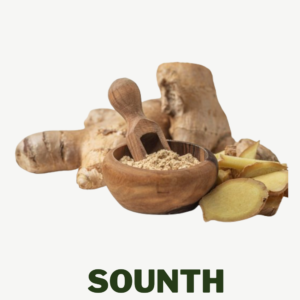Harad
Trivrit
Amaltas
Sounthi
Kutki
1. Harad
Haritaki, also known as Terminalia chebula, is a herb commonly used in traditional Ayurvedic medicine. While it has been traditionally used for a variety of health conditions, including gastrointestinal issues, it’s important to note that scientific evidence supporting its efficacy is limited, and more research is needed to fully understand its potential benefits.
Here are some ways in which Haritaki is believed to contribute to gastrointestinal health based on traditional use and limited scientific studies:
Laxative Properties: Haritaki is often considered a natural laxative and is believed to promote regular bowel movements. This can be beneficial for individuals experiencing constipation.
Digestive Support: Haritaki is thought to enhance digestion by promoting the secretion of digestive enzymes. Improved digestion may contribute to better overall gastrointestinal health.
Anti-inflammatory Effects: Some studies suggest that Haritaki possesses anti-inflammatory properties. Inflammation is often associated with various gastrointestinal conditions, and substances with anti-inflammatory effects may help alleviate symptoms.
Antioxidant Activity: Haritaki contains compounds with antioxidant properties. Antioxidants help neutralize free radicals in the body, which can contribute to cellular damage. Protecting cells from oxidative stress may have a positive impact on gastrointestinal health.
Microbial Balance: Haritaki has been investigated for its potential antimicrobial activity. Maintaining a healthy balance of gut microorganisms is crucial for gastrointestinal well-being, and substances with antimicrobial properties may contribute to this balance.
While there is some evidence supporting these potential benefits, it’s important to approach the use of Haritaki or any herbal remedy with caution. It’s advisable to consult with a healthcare professional before using herbal supplements, especially if you have pre-existing gastrointestinal conditions or are taking other medications.
2. Trivrit
Trivrit, also known as Operculina turpethum or Indian Jalap, is an herb used in traditional Ayurvedic medicine. It has been traditionally employed for various health purposes, including potential benefits for gastrointestinal issues. However, it’s essential to note that the scientific evidence supporting the use of Trivrit for gastrointestinal diseases is limited, and caution should be exercised when using herbal remedies.
Here are some ways in which Trivrit is believed to contribute to gastrointestinal health based on traditional use:
Laxative Properties: Trivrit is known for its strong laxative effects. It is believed to promote bowel movements and help alleviate constipation. The laxative action is thought to be due to the presence of compounds that stimulate intestinal motility.
Detoxification: In Ayurvedic medicine, Trivrit is sometimes used for detoxification purposes. It is believed to help eliminate toxins from the body, and this cleansing effect may indirectly benefit the gastrointestinal system.
Anti-inflammatory Effects: Some traditional uses of Trivrit suggest that it may have anti-inflammatory properties. Inflammation is often associated with gastrointestinal conditions, and substances with anti-inflammatory effects may offer relief from symptoms.
It’s important to approach the use of Trivrit or any herbal remedy with caution.
Consider the following:
Consult a Healthcare Professional: Before using Trivrit or any herbal supplement for gastrointestinal issues, it’s advisable to consult with a qualified healthcare professional. They can provide guidance based on your individual health condition, potential interactions with medications, and other relevant factors.
Dosage Considerations: Herbal remedies can have side effects, and the appropriate dosage is crucial. Taking excessive amounts of Trivrit or using it inappropriately can lead to adverse effects, such as dehydration or electrolyte imbalance.
Individual Variability: Responses to herbal remedies can vary among individuals. What works for one person may not be suitable for another. Pay attention to how your body responds and seek medical advice if you experience any adverse effects.
Safety Concerns: Pregnant or breastfeeding women, individuals with pre-existing health conditions, and those taking medications should exercise caution and consult with a healthcare provider before using Trivrit or any herbal supplement.
3. Amaltas
Amaltas, also known as Cassia fistula or Indian laburnum, is an herb that has been traditionally used in various cultures for its medicinal properties, including potential benefits for gastrointestinal health.
The primary therapeutic component in Amaltas is believed to be compounds known as anthraquinones, which impart laxative effects. The herb is often used to alleviate constipation by promoting bowel movements and easing the passage of stools. Additionally, Amaltas is thought to have mild anti-inflammatory properties, which may contribute to its traditional use in addressing certain gastrointestinal issues associated with inflammation.
While there is some anecdotal evidence supporting the use of Amaltas for digestive concerns, scientific research on its efficacy and safety for specific gastrointestinal diseases is limited. As with any herbal remedy, it is crucial to exercise caution, seek guidance from a healthcare professional, and consider individual health factors before incorporating Amaltas into a treatment regimen for gastrointestinal conditions.
4. Sounthi
“Sounth,” commonly referred to as dried ginger (Zingiber officinale), is an herb widely recognized for its potential therapeutic benefits, including its application in addressing gastrointestinal issues. Known for its warming properties in traditional medicine, Sounth is believed to stimulate digestion by increasing the production of digestive enzymes and promoting gastric motility.
is an herb widely recognized for its potential therapeutic benefits, including its application in addressing gastrointestinal issues. Known for its warming properties in traditional medicine, Sounth is believed to stimulate digestion by increasing the production of digestive enzymes and promoting gastric motility.
Its anti-inflammatory properties may help soothe the digestive tract, potentially offering relief from conditions characterized by inflammation. Sounth is also thought to alleviate symptoms of indigestion, bloating, and nausea. Additionally, its carminative effects may assist in reducing gas and flatulence.
While there is some supportive evidence for these traditional uses, it’s essential to consult with a healthcare professional before incorporating Sounth or any herbal remedy into a treatment plan for gastrointestinal diseases, especially considering individual health circumstances and potential interactions with other medications.
5. Kutki
Kutki, scientifically known as Picrorhiza kurroa, is an herb with a long history of use in traditional Ayurvedic medicine, particularly for its potential benefits in gastrointestinal health. This herb is renowned for its hepatoprotective properties, meaning it may support the health and function of the liver, an organ closely linked to digestive processes.
Kutki is believed to stimulate the production of bile, aiding in the digestion and absorption of fats. Its anti-inflammatory and antioxidant properties are thought to contribute to its therapeutic effects on the gastrointestinal system, potentially helping to alleviate symptoms associated with inflammatory conditions.
Additionally, Kutki is often used for its immunomodulatory effects, which may play a role in managing certain autoimmune gastrointestinal disorders. While there is some promising evidence supporting these traditional uses, further scientific research is needed to fully understand the mechanisms and effectiveness of Kutki in treating gastrointestinal diseases.
As with any herbal remedy, individuals should consult with a healthcare professional before incorporating Kutki into their healthcare routine, especially if they have existing health conditions or are taking medications.


